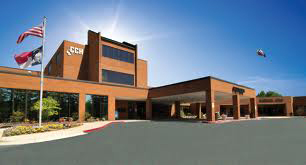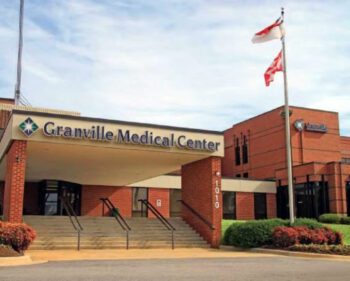Two Triangle Area Hospitals Receive Troubling “D” Grades for Patient Safety
NORTH CAROLINA – Recent evaluations by the Leapfrog Group, a nonprofit organization focused on healthcare transparency, revealed concerning “D” grades for two hospitals in the Triangle area. These grades, based on critical safety measures, highlight serious shortcomings in patient care and safety, emphasizing the need for immediate improvements to protect the well-being of patients.
The Leapfrog Group assesses hospitals twice a year, grading them on factors such as infection control, staff responsiveness, and communication. For the two hospitals that received “D” grades, persistent issues with safety protocols, patient falls, infection prevention, and insufficient staffing have contributed to their low scores.
Central Carolina Hospital – Sanford, NC

Central Carolina Hospital, which previously held consistent “B” grades from Spring 2021 to Spring 2022, has seen a steady decline in performance. After slipping to a series of “C” grades, the latest “D” rating marks the hospital’s lowest score to date, raising serious concerns about its ability to uphold safety standards.
Critical Areas of Concern at Central Carolina Hospital:
- Infection Risks: Increased rates of urinary tract infections and complications following surgeries or procedures.
- Falls and Injuries: High incidence of patient falls, including those causing broken hips, particularly among older patients.
- Bed Sores: Dangerous deep pressure ulcers, which can lead to severe infections or even amputations.
- Nursing and Bedside Care for Patients: Insufficient staffing may result in more extended hospital stays and worse patient outcomes.
- Collapsed Lung: Errors during procedures involving catheters or feeding tubes can result in a lung injury, causing severe pain and complications.
- Communication Failures: Poor communication about medications and their potential side effects, inconsistent responsiveness to patient needs from hospital staff, such as pain management or assistance, and poor doctor-patient communication.
- ICU Staffing: The absence of specially trained intensivists to care for critically ill patients.
These failures highlight critical lapses in basic safety practices, threatening patient recovery and well-being.
Granville Medical Center – Oxford, NC

Since Fall 2021, Granville Medical Center has faced difficulties in maintaining acceptable safety standards, resulting in consistently low grades in Leapfrog’s evaluations. The hospital is graded twice a year and received a “D” in Fall 2021, an “F” in Spring 2022, followed by a “D,” a “C,” and another “D,” leading to its current “D” rating. This pattern indicates ongoing challenges in addressing critical safety concerns.
Critical Areas of Concern at Granville Medical Center:
- Infection Control: Lapses in handwashing protocols and equipment cleanliness contributing to C. diff infections.
- Harmful Events: Errors following surgeries, procedures, or childbirth indicate gaps in patient safety protocols.
- Bed Sores and Falls: Recurring issues with deep pressure ulcers and unassisted falls leading to severe injuries, particularly for patients with limited mobility.
- Post-Surgical Risks: Higher-than-average rates of complications like dangerous blood clots.
- Medication Errors: The absence of a robust computerized system for ordering medications and the lack of barcode scanning for administration increase the risk of prescribing errors and incorrect dosages.
- ICU Gaps: Similar to Central Carolina Hospital, Granville Medical Center lacks specially trained intensivists in the ICU.
Granville Medical Center’s persistent safety concerns point to systemic issues that require urgent attention to protect patients.
What These Grades Mean for Patients
The Leapfrog Group’s evaluations underscore the importance of strong hospital safety protocols. These findings for patients in Sanford, Oxford, and surrounding areas raise concerns about the level of care available locally.
Both hospitals must address these shortcomings urgently, with improvements in infection prevention, staffing, and communication taking top priority. Until then, patients should remain vigilant, ask questions about safety protocols, and explore all options when seeking care.
About the Leapfrog Group
The Leapfrog Group is a national nonprofit organization that advocates for healthcare transparency and safety. By grading hospitals on critical safety measures, the group empowers patients to make informed decisions about their care while encouraging hospitals to improve their standards continuously. For more information on hospital safety ratings, visit the Leapfrog Group at www.hospitalsafetygrade.org.


